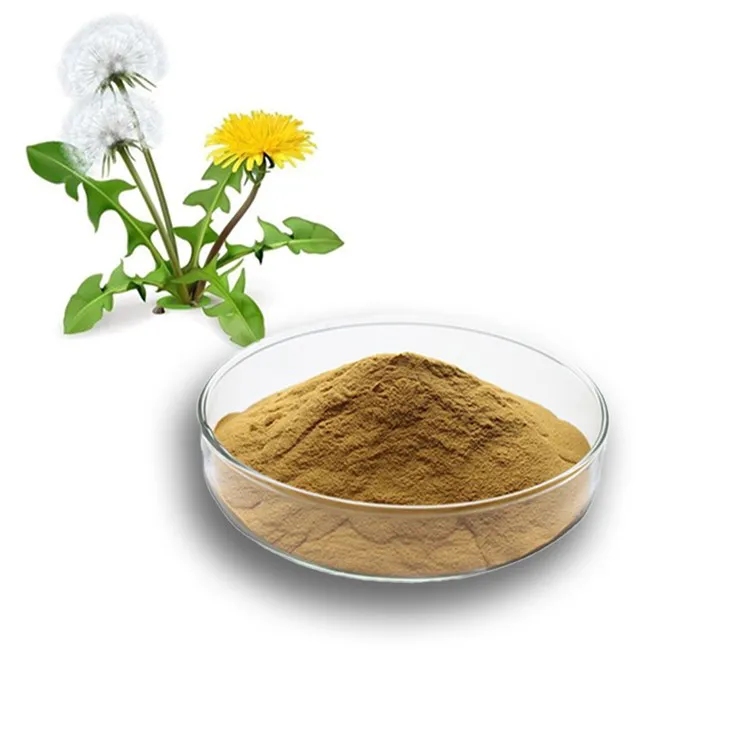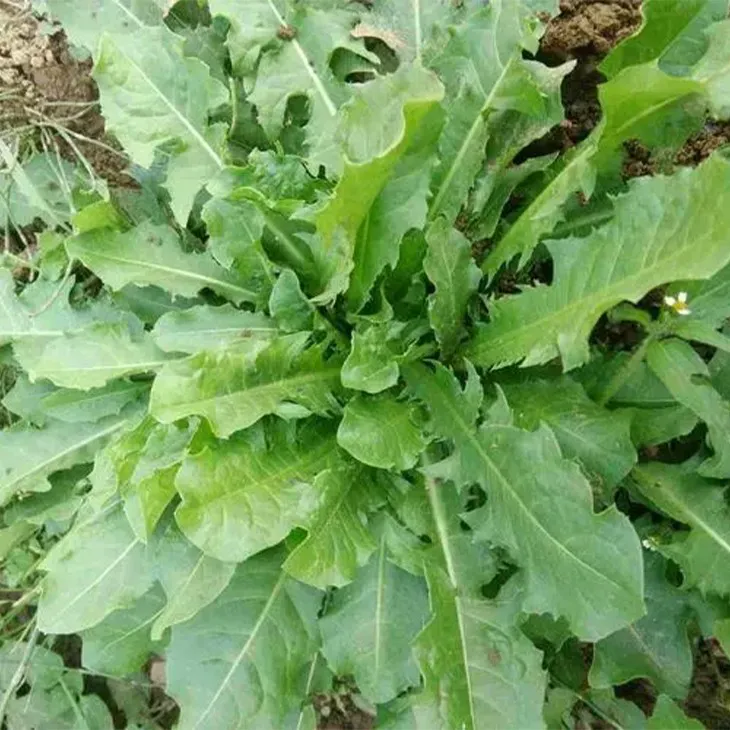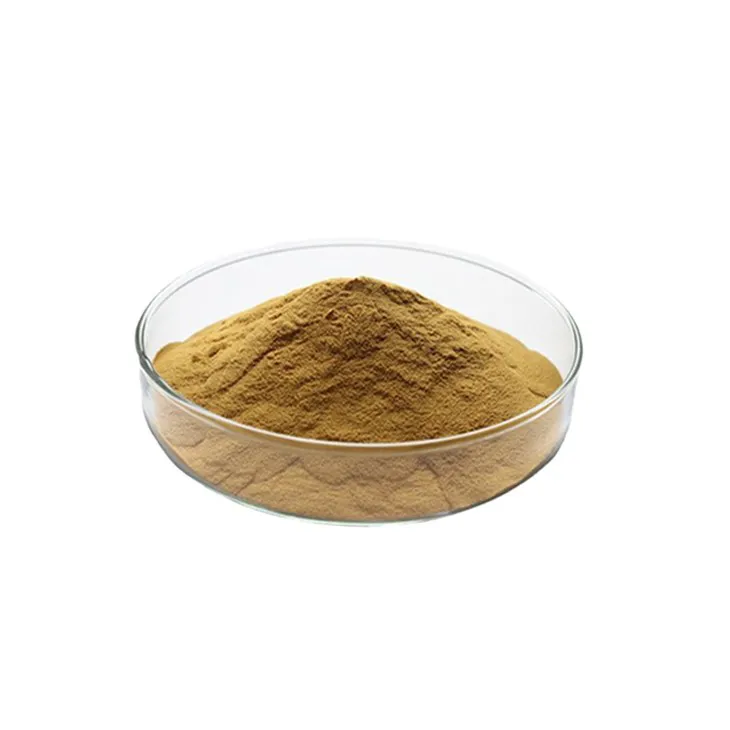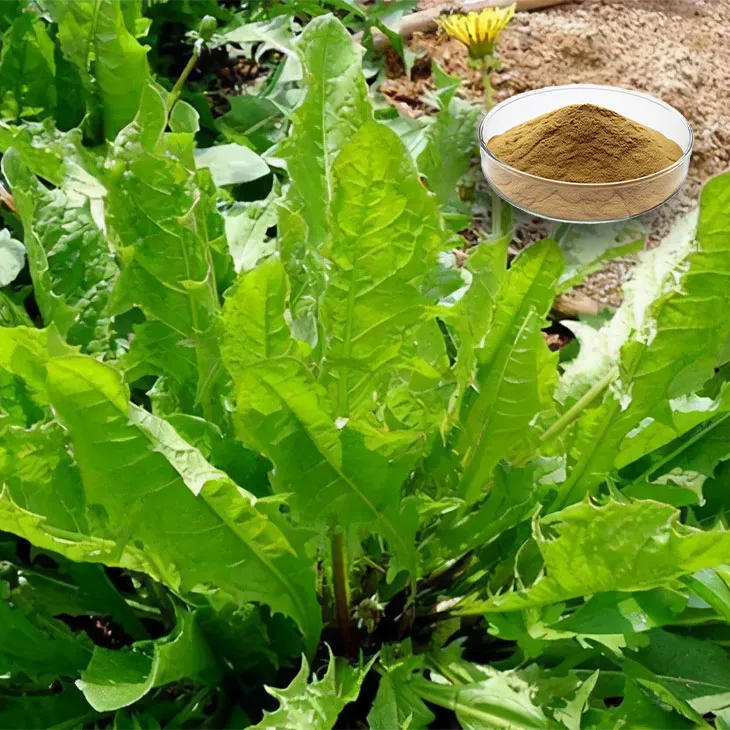- 0086-571-85302990
- sales@greenskybio.com
Components of Dandelion Leaf Extract for Fertilizers and Feeds.
2024-11-30

1. Introduction
Dandelion (Taraxacum officinale) is a common plant that has been overlooked for a long time in the context of fertilizers and feeds. However, recent research has shown that Dandelion Leaf Extract can be a valuable ingredient in both of these areas. The dandelion leaf contains a variety of bioactive substances that can play important roles in promoting plant health in fertilizers and animal well - being in feeds.

2. Bioactive Substances in Dandelion Leaf Extract
2.1. Vitamins
Dandelion leaves are rich in vitamins, such as vitamin A, vitamin C, and vitamin K. Vitamin A is essential for the growth and development of animals. In feeds, it can help improve the vision, immune function, and skin health of animals. For plants, when used in fertilizers, it can enhance the resistance of plants to environmental stresses, such as drought and disease. Vitamin C is an antioxidant that can scavenge free radicals in both plants and animals. In plants, it can help in the synthesis of cell walls and protect the plant from oxidative damage. In animals, it is crucial for the proper functioning of the immune system. Vitamin K is important for blood clotting in animals and also plays a role in plant growth and development, especially in root development.
2.2. Minerals
Dandelion Leaf Extract contains minerals like potassium, calcium, and iron. Potassium is a macronutrient for plants that is involved in various physiological processes, such as photosynthesis, water regulation, and nutrient transport. In fertilizers, potassium - rich dandelion leaf extract can improve the quality of fruits and vegetables by enhancing their taste, color, and shelf - life. For animals, potassium is important for maintaining proper heart function and muscle contractions. Calcium is essential for building strong bones and teeth in animals. In plants, it is a component of cell walls and is involved in cell signaling. Iron is necessary for the synthesis of chlorophyll in plants and for oxygen transport in animals.
2.3. Phytochemicals
- Flavonoids: Dandelion leaves contain flavonoids such as luteolin and apigenin. These flavonoids have antioxidant, anti - inflammatory, and antimicrobial properties. In plants, they can protect against pests and diseases. In animals, they can help reduce inflammation and improve the overall health of the digestive system.
- Terpenoids: Terpenoids in dandelion leaves play a role in plant - plant and plant - insect interactions. They can also have potential benefits for animals, such as acting as natural repellents against parasites.
- Phenolic acids: These compounds, like caffeic acid and chlorogenic acid, have antioxidant and antimicrobial activities. In fertilizers, they can improve soil fertility by influencing the soil microbial community. In feeds, they can enhance the antioxidant status of animals.

3. Role of Dandelion Leaf Extract in Fertilizers
3.1. Improving Soil Fertility
The bioactive substances in dandelion leaf extract can have a positive impact on soil fertility. The minerals present in the extract can replenish the soil with essential nutrients. For example, potassium and calcium can correct nutrient deficiencies in the soil. The organic matter in the extract can also improve soil structure. It can increase the soil's water - holding capacity, making it more suitable for plant growth. Additionally, the phenolic acids can influence the soil microbial community. They can promote the growth of beneficial microorganisms such as nitrogen - fixing bacteria and mycorrhizal fungi, which in turn can enhance soil fertility.
3.2. Enhancing Plant Growth and Development
- The vitamins in the dandelion leaf extract, especially vitamin C, can stimulate plant growth. It can enhance the production of growth hormones in plants, leading to increased cell division and elongation.
- The flavonoids and terpenoids can act as natural plant growth regulators. They can influence plant development processes such as root growth, shoot elongation, and flowering. For example, some flavonoids can promote root branching, which helps plants to better absorb water and nutrients from the soil.
- The iron in the extract is essential for chlorophyll synthesis. Adequate chlorophyll production is crucial for photosynthesis, which provides the energy for plant growth and development.
3.3. Boosting Plant Resistance
- The antioxidant vitamins and phenolic acids in the dandelion leaf extract can help plants resist oxidative stress. Oxidative stress can be caused by environmental factors such as high light intensity, drought, and pollution. By scavenging free radicals, these substances can protect plant cells from damage.
- The antimicrobial properties of flavonoids and phenolic acids can protect plants from pathogenic microorganisms. They can act as a natural defense mechanism against diseases, reducing the need for chemical pesticides.

4. Role of Dandelion Leaf Extract in Feeds
4.1. Nutritional Benefits for Animals
- The vitamins and minerals in dandelion leaf extract provide essential nutrients for animals. For example, vitamin A is important for the eyesight and immune function of animals, while calcium is necessary for bone development. The presence of these nutrients in the feed can improve the overall health and productivity of animals.
- The flavonoids and phenolic acids have antioxidant properties. In animals, antioxidants can help prevent oxidative damage to cells, which can occur due to various factors such as stress and poor diet. This can lead to improved immune function and reduced incidence of diseases in animals.
4.2. Digestive Health Improvement
- The fiber content in dandelion leaves can improve the digestive function of animals. It can add bulk to the diet, promoting proper bowel movements and preventing constipation in animals.
- The flavonoids can have a positive impact on the gut microbiota of animals. They can promote the growth of beneficial bacteria in the gut, which in turn can improve digestion and nutrient absorption. For example, some flavonoids can enhance the production of short - chain fatty acids in the gut, which are an important source of energy for animals.
4.3. Anti - Inflammatory and Immune - Boosting Effects
- The flavonoids and terpenoids in dandelion leaf extract have anti - inflammatory properties. In animals, chronic inflammation can lead to various health problems. By reducing inflammation, these substances can improve the overall well - being of animals.
- The vitamins, especially vitamin C, and the antioxidant compounds in the extract can boost the immune system of animals. A strong immune system is essential for animals to resist diseases and infections.

5. Ecological Benefits
5.1. Sustainable Source
Dandelions are widespread and grow abundantly in many regions. Using dandelion leaf extract in fertilizers and feeds can be a sustainable practice. It reduces the reliance on synthetic chemicals, which are often produced from non - renewable resources. Moreover, harvesting dandelions does not require large - scale agricultural operations, minimizing the environmental impact associated with traditional crop production.
5.2. Biodiversity Promotion
- When dandelions are used in a more sustainable way, it can have a positive impact on biodiversity. Instead of eradicating them as weeds, we can utilize them as a valuable resource. This can help maintain the ecological balance in natural habitats.
- In the case of using dandelion leaf extract in fertilizers, it can promote a more diverse soil microbial community. A diverse soil microbiota is beneficial for overall ecosystem health, as it is involved in nutrient cycling, soil structure maintenance, and plant - microbe interactions.
6. Conclusion
Dandelion leaf extract contains a rich array of bioactive substances that make it a valuable component in fertilizers and feeds. Its bioactive substances play important roles in promoting plant health in fertilizers and animal well - being in feeds. Additionally, the use of dandelion leaf extract offers ecological benefits, such as being a sustainable source and promoting biodiversity. However, more research is needed to fully understand its potential and optimize its use in these applications. With further study, dandelion leaf extract could become a more widely used and important ingredient in the fields of fertilizers and feeds.
FAQ:
What are the main bioactive substances in dandelion leaf extract?
Dandelion leaf extract contains various bioactive substances. Some of the main ones include flavonoids, phenolic acids, and triterpenes. Flavonoids have antioxidant properties that can help protect plants from oxidative stress and also may have beneficial effects on animals when consumed. Phenolic acids can play a role in plant defense mechanisms and potentially enhance the nutritional value of feeds for animals. Triterpenes may contribute to plant growth regulation and could have positive impacts on the health of animals as well.
How does dandelion leaf extract promote plant health?
The bioactive substances in dandelion leaf extract contribute to plant health in multiple ways. The antioxidants help scavenge free radicals, reducing damage caused by environmental factors such as UV radiation and pollution. It can also enhance the plant's immune system, making it more resistant to diseases and pests. Additionally, certain components may aid in nutrient uptake and improve soil quality, which in turn promotes better plant growth and development.
What are the nutritional contributions of dandelion leaf extract in feeds?
Dandelion leaf extract can offer several nutritional contributions in feeds. It may contain vitamins such as vitamin A, C, and K, which are essential for animal health. Minerals like potassium, calcium, and iron are also potentially present. These nutrients can support proper growth, development, and immune function in animals. Moreover, the bioactive compounds in the extract may have prebiotic - like effects, promoting a healthy gut microbiota in animals.
What are the ecological benefits of using dandelion leaf extract in fertilizers and feeds?
When used in fertilizers, dandelion leaf extract can contribute to a more sustainable ecosystem. It can improve soil structure and fertility in a natural way, reducing the need for synthetic fertilizers that may have negative environmental impacts. In feeds, it can potentially lead to healthier animals that produce less waste, which is beneficial for the overall ecological balance. Also, dandelions are often abundant in nature, so using their extract can be a part of a more sustainable agricultural practice.
Are there any potential drawbacks or limitations of using dandelion leaf extract in fertilizers and feeds?
One potential drawback could be the variability in the composition of dandelion leaf extract depending on factors such as the plant's growth conditions and harvesting time. This variability might make it difficult to standardize the product for consistent results in fertilizers and feeds. There may also be concerns about potential allergic reactions in some animals to certain components of the extract, although this is not yet fully understood. Additionally, large - scale extraction of dandelion leaves needs to be managed carefully to ensure it does not disrupt natural ecosystems where dandelions play important ecological roles.
Related literature
- Bioactive Compounds in Dandelion (Taraxacum officinale) and Their Potential Health Benefits"
- "The Role of Dandelion Extract in Sustainable Agriculture: A Review"
- "Dandelion Leaf Extract: Nutritional and Functional Properties in Animal Feeds"
- ▶ Hesperidin
- ▶ citrus bioflavonoids
- ▶ plant extract
- ▶ lycopene
- ▶ Diosmin
- ▶ Grape seed extract
- ▶ Sea buckthorn Juice Powder
- ▶ Beetroot powder
- ▶ Hops Extract
- ▶ Artichoke Extract
- ▶ Reishi mushroom extract
- ▶ Astaxanthin
- ▶ Green Tea Extract
- ▶ Curcumin Extract
- ▶ Horse Chestnut Extract
- ▶ Other Problems
- ▶ Boswellia Serrata Extract
- ▶ Resveratrol Extract
- ▶ Marigold Extract
- ▶ Grape Leaf Extract
- ▶ blog3
- ▶ blog4
-
Nature's Bounty Tongkat Ali Extract Powder.
2024-11-30
-
Nature's Bounty lotus leaf extract.
2024-11-30
-
Organic Almond Extract Powder Supplier.
2024-11-30
-
Bulk purchase of camu - camu extract.
2024-11-30
-
Chinese peppermint oil powder suppliers.
2024-11-30
-
Pine bark Extract Powder
2024-11-30
-
Bilberry Extract
2024-11-30
-
Pomegranate Extract
2024-11-30
-
Tongkat Ali Extract
2024-11-30
-
Diosmin
2024-11-30
-
Peppermint Extract Powder
2024-11-30
-
Eucommia Ulmoides Extract
2024-11-30
-
Citrus bioflavonoids
2024-11-30
-
Boswellia Serrata Extract
2024-11-30
-
Nettle Root Extract
2024-11-30





















